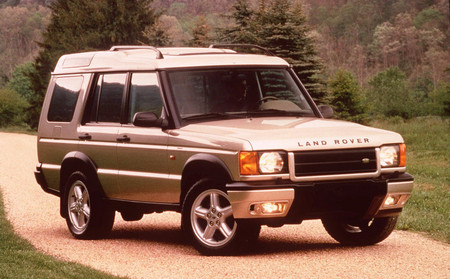Cash for clunkers rules complicated

By the end of this week, the U.S. government plans on unveiling the rules for its cash for clunkers program.
The Car Allowance Rebate System, or CARS, will allow folks with a gas guzzler to get a rebate of $4,500 or less when they turn in their clunker and purchase or lease a new car.
The program is supposed to reinvigorate lagging U.S. auto sales with the help of $1 billion of federal money.
But there is major concern among financial analysts whether the program will have its intended effect.
The restrictions set forth on who can take advantage of the program seems to be the major problem.
The preliminary rules that have been released so far say the vehicle must be less than 25 years old and get 18 miles per gallon or less.
Although the list of vehicles that could be eligible is immense, how many people who own such clunkers have the cash to purchase or the ability to take out new debt on a brand new car?
Probably not many, said Jeremy Anwyl, chief executive officer of Edmunds.com, an online resource for automotive information.
“In terms of vehicle sales, the only consumers who will be interested are those willing to take no more than $4,500 for their current car and yet be financially able to buy a new one — quite a narrow profile,” Anwyl said.
“This legislation attempts to offer a benefit for the environment and to spur vehicle sales, but the reality is that it does neither very well,” he said.
Some financial analysts concur with that assessment.
Rebecca Lindland an analyst for IHS Global Insight, told the Wall Street Journal the program might boost sales by 175,000 vehicles this year.
But that’s not a whole lot of help, considering the effect the recession has had on the industry.
U.S. auto sales are already down almost 30 percent in the first six months of 2009, with 9.7 million vehicles sold compared to 13.7 million vehicles sold during the same period in 2008.
The specific rules for the CARS program are supposed to be announced Friday. But some preliminary rules are already in place, including:
• The owner of the clunker must have owned the vehicle for at least one year.
• The vehicle you are buying or leasing must be a new vehicle and cannot cost more than $45,000.
• For passenger vehicles being purchased or leased, the combined fuel economy, for both city and highway driving, must be at least 22 mpg (trucks have different standards).
• Once a clunker is traded in, it will be smashed into who knows what (Star Wars reference, everyone; the car will actually be crushed).
• The availability of the rebate will run through the end of October, or until the rebate funding is gone.
• You can lease a car under the program as long as it’s at least a five-year lease.
• Auto dealers that want to participate in the program must register with the federal government.
One of the problems Anwyl has with the program is the one-year ownership requirement.
“If the goal is to remove old cars from the road, why should it matter who owns them and for how long,” he said.
By removing that clause, Anwyl reasons, it could prompt three car sales for every participant: the sale of the clunker to the participant; The replacement of the clunker by its previous owner (likely a used car); and the purchase of the new car by the participant.
That would not only help auto dealers, but would triple the sales tax generated from the sales, Anwyl said.
It makes sense to me. If I wanted to purchase a $22,000 Toyota Prius and didn’t have a clunker, it certainly would be advantageous to me to go out and buy a $1,000 clunker in order to get a $4,500 rebate.
I would argue that some late-model used vehicles also should be included among the vehicles that can be purchased. That would be similar to a program instituted in Germany that saw about a million participants.
The Germans also had a simpler system that didn’t pigeonhole buyers. Plus they invested $6.5 billion in their rebate program.
The U.S. government program is more complicated and far less inclusive. And even if all the rebate money is doled out, it will hardly put a dent in the decline in U.S. auto sales.
If you have a question, tip or tirade, call the Road Warrior at 702-387-2904, or e-mail him at roadwarrior@reviewjournal.com. Please include your phone number.